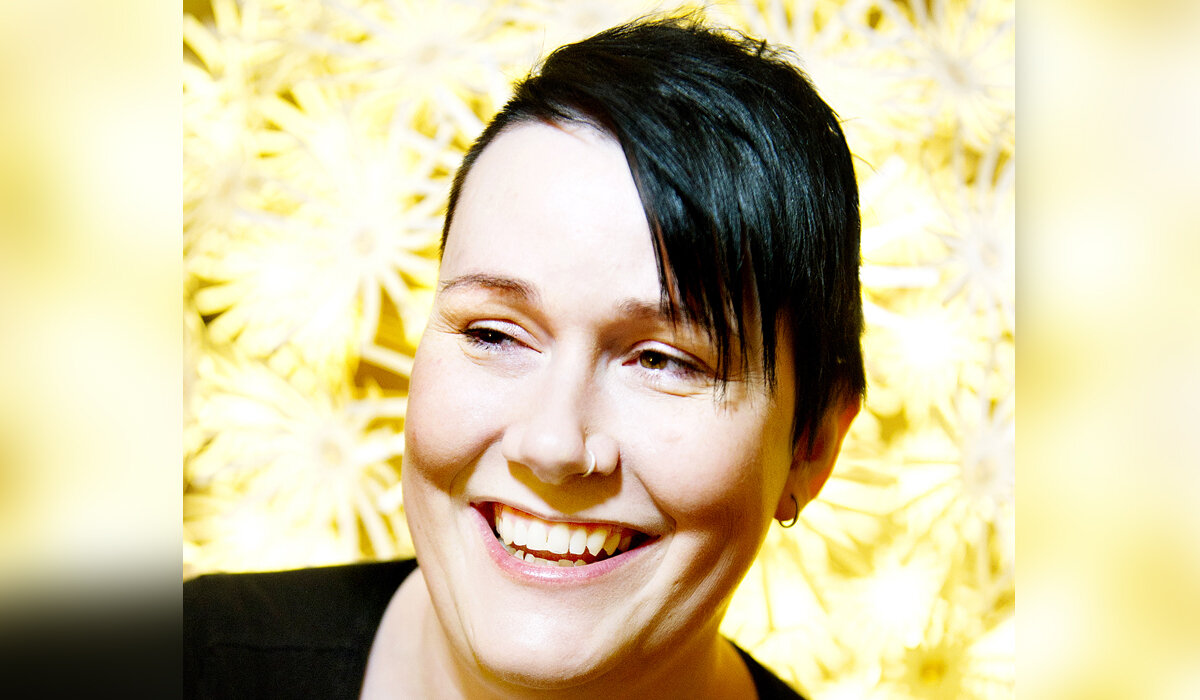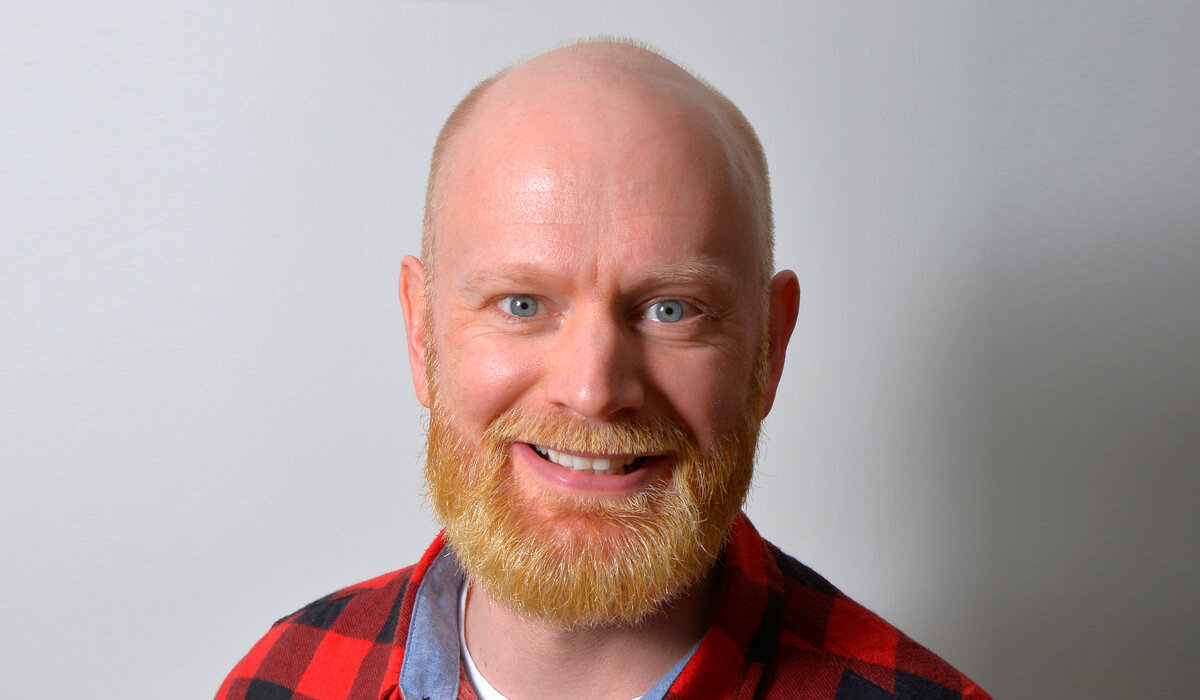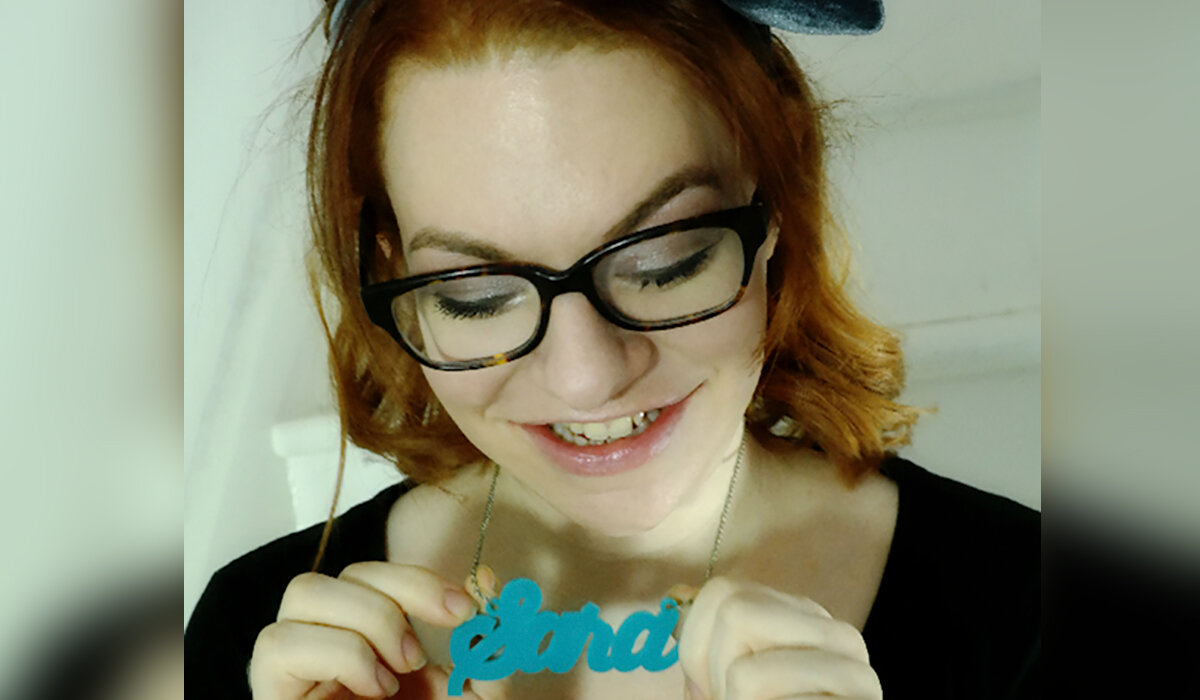
"My stand-up is very personal. I tell stories, I overshare. So talking about being autistic has become a central part of my act."
Bethany Black
- on being a stand-up comedian
Stories from the Spectrum: Bethany Black
In this Stories from the Spectrum interview, we spoke to Bethany Black.
Bethany Black is an autistic actor, writer and comedian. You might know Bethany from her acting work – as one of the stars of channel 4's Cucumber, Banana, Tofu trilogy or her guest roles in Doctor Who and No Offence. She has been a firm favourite on the UK stand-up comedy circuit for over a decade. In 2008 she won Best Newcomer nominations at a number of comedy festivals for her show Beth Becomes Her.
Bethany also took to the stage for our Matt and Co comedy show last November, joining the likes of Greg Davies, Nish Kumar and Sara Pascoe. We chatted to Bethany about seeking an autism diagnosis and what it’s like working as an autistic person in the stand-up comedy scene…
When were you diagnosed as autistic?
I was diagnosed as autistic in October 2017. I’d known for years, ever since my sister’s twins Spike and Felix were diagnosed and my sister said a lot of the things the assessment had bought up were things that I did when I was little.
Why did you seek an autism diagnosis?
I’d sought a diagnosis before but struggled to figure out the exact order of how to do it, plus I have ADHD, which makes remembering to contact people at the right time, or in the moment difficult. I was chatting to my therapist, and said that I thought that I might be autistic because I struggle to understand the right response in social situations. Terrible for friends and responsibilities, perfect for being a comedian.
What is being autistic like for you?
I often become upset or anxious about things that other people seem to be able to do without any worries.
Noises often make me feel like I’m drowning, and I can’t use public transport, because being trapped in a place with people who may behave in a way that’s unpredictable and scary is too much for me. I have hyper sensitive skin in places, no feeling at all in others, so touching my back feels like burning, but I get bruises all over my forearms and hands without knowing how. I’m also terrible with money - I have little idea how much things should cost. Conceptually, I struggle to think about how money works and even with budgets I often end up over spending and being confused as to how I did it!
How did you get into stand-up comedy and performing?
I always wanted to do comedy and stand-up. I could memorise whole scripts when I was a child from one viewing of Blackadder, or The Young Ones, but never thought I’d be able to write comedy, or be funny enough, so kind of put it on the back burner, and then a friend needed someone to host his cabaret night and I volunteered. It was terrifying and I was awful. But I managed to get one laugh from the audience for a joke I’d written, and in my head I KNEW it meant that I could do this. So, away I went and worked at it. It took a long time to learn how to do what I wanted to do, but it was totally worth it.
Does being autistic influence your comedy?
Oh absolutely, being autistic affects the way I think and being able to think a bit differently than everyone else is the very key to comedy, you examine yourself, how the world sees you and how you see the world.
My stand-up is very personal. I tell stories, and I overshare, so talking about being autistic and how it affects me has become a central part of my act.
"My stand-up is very personal. I tell stories, and I overshare, so talking about being autistic and how it affects me has become a central part of my act."

What are the barriers that an autistic person might face working in the stand-up comedy scene and how do you think those barriers can be removed?
Performing comedy, I was around other people who were like me. I find it’s the easiest way for me to socialise, not just with other comedians, but with audiences. I go to a club and I sit in a quiet room at the back, then I go on stage and have a conversation with 300 people at once and anyone who tries to talk back can be thrown out. I’m lit, they’re not, and I’m in control of the volume of the conversation. It’s perfect for me! The only downside is getting to the gigs, I drive everywhere and that can be stressful, though not as stressful as going anywhere by train.
What advice do you have for autistic people who want to get into stand up?
Please do it! You’ll know immediately if it is for you. It was my obsession my whole life and performing only solidified that. It gave me a community and it was a place where, for the first time ever, I thought “I’m home” when I walked backstage into a green room.
What can we all do to create a society that works for autistic people?
Can we make everyone else behave themselves? Follow the rules? Be a bit quieter, make a few less unexpected sounds and movements? Because if we can, that would make me feel a lot easier out in the world.
Watch Bethany on Spectrum Live
Watch Bethany chat more about her diagnosis and navigating the comedy scene as an autistic person in our Spectrum Live 'Life stories' series. You can find out more about Spectrum Live, and catch up on all our episodes here.
Similar stories

"My memories of events are different from the rest of the audience, so I try and bring an audience into my world."
John Pendal
- on doing stand-up comedy
Read more

"I think there's a lack of understanding of how autism can present in girls, who are often socialised differently."
Sara Gibbs
- on accessing support as an autistic woman
Read more

The Spectrum magazine
Explore one of the UK's largest collections of autistic art, poetry, and prose. The Spectrum magazine is created by and for autistic people, and is available both online and in print.
Read the Spectrum





You are not alone
Join the community
Our online community is a place for autistic people and their families to meet like-minded people and share their experiences.
Join today